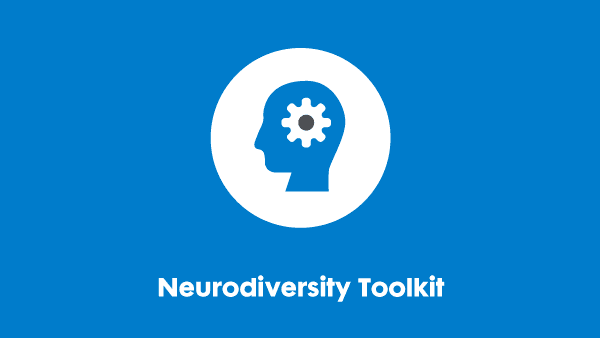Last updated: 7 April 2025

This resource is part of our Disability Essentials range. You can find the other free resources that are included in this range by on this page.
What is cluttering?
Cluttering is a little-recognised condition that is closely associated with stuttering. A person with cluttered speech may talk rapidly and in a way that sounds disorganised or unclear. It may sound as though the person isn’t sure what they’re trying to say, and their speech could have long breaks between spurts of speech.
Unlike stuttering, where the speaker knows exactly what they want to say but can temporarily struggle with the physical mechanics of speech, cluttering is not caused by a physical barrier. Instead, cluttering is a processing difficulty.
Both cluttering and stuttering are categorised as ‘speech fluency disorders’ or ‘speech disorganisation disorders’ and are two distinctly separate conditions. However, due to the lack of general awareness of cluttering, it is still common for people with the condition to assume that they have a stutter.
Stuttering is not the only condition that commonly co-exists with cluttering; it is closely associated with neurodiversity. Other conditions linked to it included social anxiety disorder, Down’s syndrome and seizure-related conditions.
What causes cluttering?
The cause of cluttering remains unknown, but various theories are beginning to emerge.
One suggests a genetic link as it is common in families that have conditions affecting speech fluency. Another view is that there are differences in the speech centre of the brain.
How does cluttering affect an individual?
A person who clutters can face many barriers similar to those faced by those with neurodiversity labels.
Many people affected by cluttering describe their minds as being ‘busy’ with thoughts and images. This can make it difficult to process information, reduce it to what is required, order it correctly, and turn it into speech. It is as if the different mechanisms work at different speeds and are interrupted or distracted during the process.
Cluttering speech is often identified by a variety of characteristics, including:
- Appearing to speak faster than would normally be expected
- Fluctuations in the speed of talking and not where they would naturally occur
- Fluctuations in the volume of their speech
- Unexpected pauses in speech, such as in the middle of a phrase or sentence
- Excessive use of words or ‘fillers’ such as “um” and “err”
- To the listener, the context of the speech can sound unclear and disorganised. As a result, it may come across as unplanned, muddled, or speaking for the sake of speaking rather than having something important to say.
- Mispronouncing or not saying the whole word. For example, saying “fluctions” instead of “fluctuations”
- Missing out the endings of words or omitting some words altogether. For example, saying “televis” instead of “television”
- Meshing words or parts of words or sentences together such as “wanwat” for “want to watch”
- Word retrieval challenges resulting in a struggle to find the right word
- “Maze” behaviours, such as when a person starts speaking about one topic and, mid-way through a sentence, changes to a different one for no apparent reason
- Starting a sentence and pausing during it to change or correct what has been said
- The person may also use more physical movements when speaking, such as moving their hands and arms, especially when they start to stumble over formulating the following few words.
- Monotone way of speaking.
These characteristics can make the speech difficult to understand. The speech may sound too fast, mumbled, sporadic, or ‘blurty’. The content of the speech may also sound unprepared or unstructured.
People who ‘clutter’ might not experience all these characteristics, and they may be more or less pronounced in different people.
Potential impact on work
A person who has cluttering speech may not be aware of how their speech comes across to the listener or that they ‘clutter’. Others may realise they do not speak as fluently as other people but not be aware of the underlying condition or how to get help. A speech and language specialist can teach the person techniques and improve their awareness of their individual triggers and symptoms.
The individual may find that colleagues and clients do not understand what they are saying and become irritated or impatient at work. This is especially true if they constantly have to ask for the person to slow the speed of their speech or speak more clearly.
Some colleagues and clients may find it difficult to hear what is said due to the volume changes that can occur.
If people find it difficult to understand or follow what a person is saying, they may try and avoid speaking to the individual and communicate by email instead. This has the potential to lead to the individual feeling isolated, bullied, or overlooked for promotions and tasks at which they might otherwise excel.
If an individual also has an impacting co-existing condition, these extra barriers can further isolate and disadvantage an individual in the workplace.

Legal duties
The Equality Act 2010
In the UK, employers have duties to:
- prevent discrimination, and
- provide reasonable adjustments
for their disabled employees. This means that it is unlawful for employers to treat applicants, job candidates and employees unfavourably because of their disability.
The Equality Act also requires employers to make ‘reasonable adjustments’ for their disabled employees.
Suggested adjustments
- Time off for appointments with Speech and Language Therapists and any other related conditions.
- Encouragement and working with the person to practice and implement any strategies they have been given. The techniques will vary for each individual. Two common ones are being given time and encouragement to take the time consciously to formulate fully what they want to say before they start speaking, and then to speak slowly.
- Extra preparation time and privacy to practice for any public speaking events, for example, at conferences. This may include writing a script and learning it in advance.
- If the person does not feel comfortable speaking at live events or meetings, then look at alternatives such as pre-recording any presentations. Recording speech appears to help reduce the characteristics of cluttering.
- The person may prefer using email for much of their communication needs. This may be especially true if they have not had the opportunity to learn helpful techniques from speech and language specialists.
- Patience and flexibility. It requires a significant amount of concentration by cluttering speakers to focus on the techniques needed to improve their speech fluency. Although the results can be dramatic in some cases, the level of concentration can be very tiring, and this should be appreciated and taken into account.
- Access to an Employee Assistance Programme may be helpful, especially if the person has just been diagnosed or made aware that their speech is not as fluent as other people and as they believe. It is likely temporarily to cause some confidence issues and potentially mental ill-health symptoms as they adjust.
Further information
For more information on suggested adjustments, specific barriers for cluttering speech and information about the law, please see our other resources in the Knowledge Hub.
For more detailed information and advice about a specific situation, contact the Advice Service:
Tel: +44-20-7403-3020
Textphone: +44-20-7403-0040
Email: advice@businessdisabilityforum.org.uk
Too Fast for Words
Too Fast for Words is an organisation that provides raises awareness of cluttering and provides advice and support for people who clutter and those who are close to them.
Website: toofastforwords.com
Email: hello@toofastforwords.com
SLT
SLT provides expertise in speech and language therapy for adults. They can provide advice and support, including assessment and individualised treatment plans.
Website: www.slt.co.uk
Email: office@slt.co.uk
Tel: +44 330 088 5643
2-5 St John St, Manchester, M3 4DN
If you require this content in a different format, contact enquiries@businessdisabilityforum.org.uk.
© This resource and the information contained therein are subject to copyright and remain the property of the Business Disability Forum. They are for reference only and must not be copied or distributed without prior permission.
